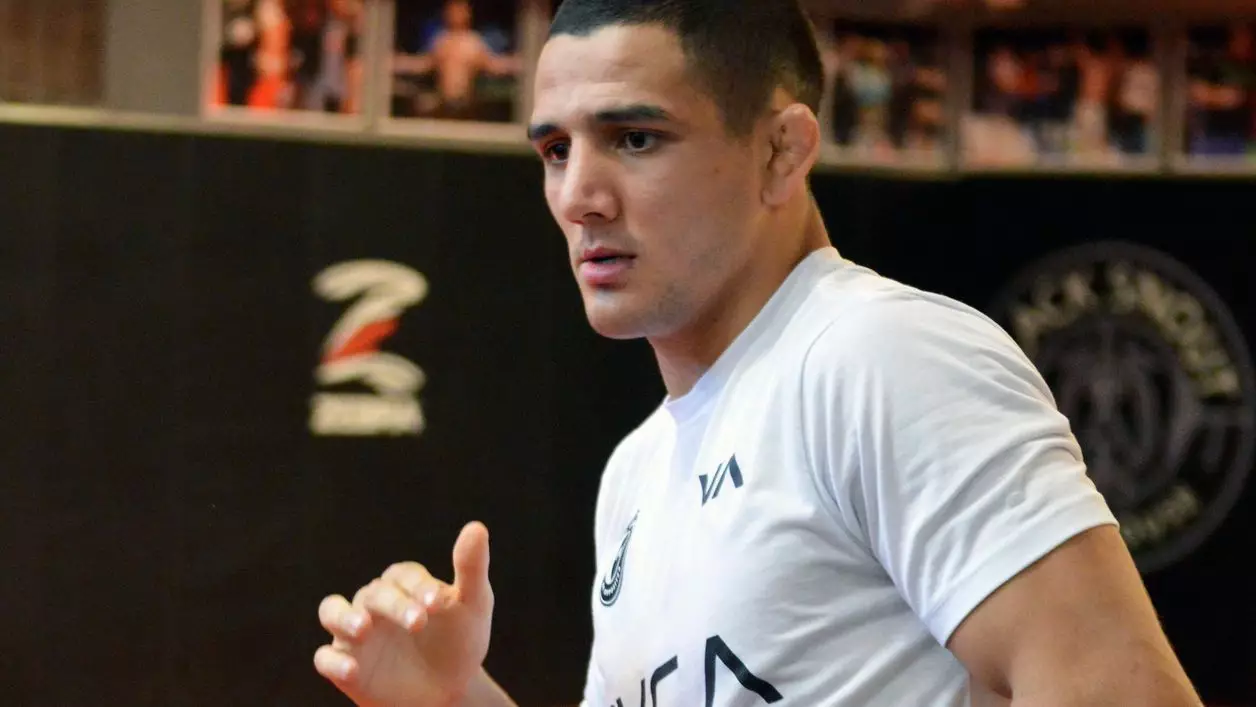In an unprecedented declaration in the mixed martial arts (MMA) landscape, Aaron Pico has committed to never competing under the Professional Fighters League (PFL) banner again, highlighting a fierce stance on his career autonomy. At just 28 years old and with a record of 13 wins, four losses, and an impressive nine knockouts, Pico stands at a crucial juncture in his career. He currently finds himself as a free agent, proclaiming his intentions to join the Ultimate Fighting Championship (UFC). This bold move underscores a growing trend among fighters looking for more competitive opportunities and better fight schedules.
Pico’s adamant rejection of the PFL, even at the risk of sitting out for an entire year, raises questions about the organizational dynamics within modern MMA promotions. He has made it clear to ESPN that he would prefer to wait out his contract rather than return to an environment where he feels undervalued and restricted. Such a perspective emphasizes the complex relationship between fighters and promotions, where contractual obligations can often stifle an athlete’s potential and ambitions.
PFL’s right to match any offer made to Pico presents a significant obstacle in his transition to the UFC. This contractual clause, although a common practice in the industry, may inadvertently constrict fighters’ mobility and leverage in negotiations. Pico’s frustration is palpable; he has experienced the repercussions of cancelled fights that have eroded his confidence in the PFL, leading to his resolute declaration to abandon any future engagements with the organization.
This situation is reflective of broader systemic issues in the MMA world, where fighters often find themselves at the mercy of promotional contracts that can extend their inactivity. With competitors like Pico becoming increasingly vocal about their dissatisfaction, it begs the question: can aspiring fighters effectively navigate the murky waters of contractual obligations while seeking meaningful competition?
Pico’s journey to this point is particularly noteworthy. He began his career under Bellator MMA, signing a developmental contract before making his professional debut—a unique trajectory that may have set him up for a tumultuous relationship with fight organizations. After the PFL’s acquisition of Bellator in late 2023, Pico’s fight opportunities dwindled to a mere fraction of what he had anticipated, having fought only once since the takeover. This glaring disparity between expectation and reality fuels his desire for a new beginning.
Moreover, Pico is just one of several fighters expressing discontent with the PFL’s management. Prominent names like Gegard Mousasi and Patricio Pitbull Freire have also sought their freedoms, highlighting a resentment brewing among athletes who feel trapped by their contracts. With a potential format overhaul in the 2025 PFL season, it remains to be seen how these shifts will impact fighter relations and opportunities.
As the MMA landscape evolves, Pico’s narrative serves as a potent reminder of the need for equitable treatment for professional athletes. His stance not only advocates for his own career autonomy but also symbolizes a call for systemic change within fight promotions. Athletes, like Pico, deserve transparency and the opportunity to pursue their ambitions without the constraints of restrictive contracts. It is crucial for MMA organizations to reconsider how they engage with fighters and promote their welfare to create a more equitable and dynamic fighting environment.
Pico’s story could inspire a new wave of fighters to challenge the norms and advocate for their rights, ultimately shaping the future of the sport for the better. In this evolving landscape, perhaps more fighters will follow Pico’s lead, prioritizing their career aspirations and navigating the intricacies of promotional politics with a newfound courage.


Leave a Reply